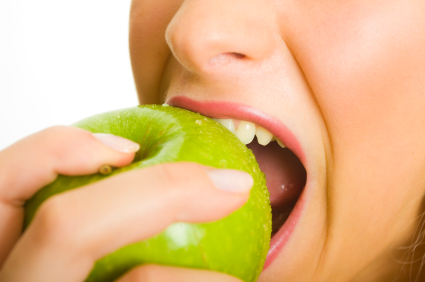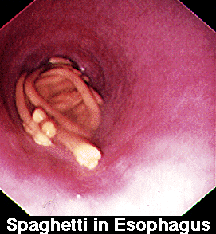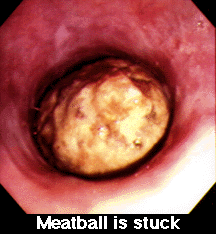Have you ever watched a baby or child eat?
They instinctively chew and chew and chew, until their food is mush before swallowing. And it takes them a really long time to eat because of it.
Similarly, my dad is an amazing outlier of our country’s “non-chewing” culture. As a child, I remember him always being the last one to finish his meal at family dinners (what took him so long!? ), taking his dear time eating and enjoying his food.
It just took me a few (or 27) years to now appreciate his perfectly modeled patience and diligence in eating.
Somehow, I, and many of us adults, grow up and override our natural eating instincts to slow down and chew.
What transpires between babyhood and adulthood in regards to eating our food?
Let’s take babies first. They have nowhere to be, no pressures, tasks, or cares besides living in the moment, pooping, eating, sleeping, drooling and smiling.
And then, there’s the adult world. Pressure to succeed, jobs, Facebook, family, Twitter, stress, Pinterest… always going and doing.
But not really being.
We eat on the run.
In the car (guilty).
While watching TV or reading (guilty).
While walking or talking (guilty)…
While not being present (guilty).
And when we devour life, we end up devouring our food.
We’re guilted into thinking we can’t take the time to eat or we’re always multi-tasking, and we forget to stop. Slow down. Enjoy. And chew.
Could it be that the way we chew (or don’t chew) our food is a mirror of the way we live our lives? That between care-free childhoods and pressure-filled adulthood, we go from slowly eating and enjoying food and life… to scarfing both?
Totally guilty myself, I propose that we make conscience changes not only in the way we eat our food, but realizing that life is better when we stop and enjoy it along the way, rather than trying to always get to our next destination.
The Consequences of Devouring Our Food
After all, these bad habits cause bad consequences, i.e. the pictures to the right.
{Warning: This is graphic (too late!?).}
In this instance, a woman somehow swallowed spaghetti and meatballs whole, causing a major blockage in her esophagus (any guesses on how this happened!?).
If you can get beyond the gross factor of these images, they really are great reminders of what happens when we don’t chew.
Here’s another visual experiment that you can do (for yourself or a friend/family member) to show the difference between poor chewing and thorough chewing:
- Cut 3 inch-long carrot slices.
- Chew the 1st slice 8 times, and then spit it out on a plate.
- Chew the 2nd slice 20 times, and then spit it next to the other chewed carrot on the plate.
- Chew the 3rd slice 35 times, and spit out the contents next to the other chewed masses.
Pretty powerful, huh?
Just think about the toll that the first carrot (chewed 8 times) will take on the body during digestion, vs. the 3rd carrot (chewed 35 times)!
Tips and Benefits of Chewing
The purpose of chewing in the first place is to liquefy our food via salivary enzymes, which are released when food enters our mouth, and go to work on breaking down carbohydrates and softening our food.
When that doesn’t happen, our body has to work much harder to digest food, and it can result not only in indigestion and other issues such as heartburn, but also in undigested food particles. For heartburn relief look now online.
Another issue is that when we are distracted while eating – in the car, walking, watching TV, etc. – our bodies are in “sympathetic mode,” meaning that our bodies are ready for action, diverting attention away from digesting food.
Thus, the food sits in the stomach longer than normal, causing fermentation, bloating, and other issues.
On the other hand, when we are fully relaxed, our body is in “parasympathetic mode,” where it is fully attentive and ready to digest food well.
To get into “parasympathetic mode” and form great digestion habits, try these two things:
1. Sit down and relax while eating.
This is SO hard for me sometimes, especially when I am cooking something, or super hungry, or just not paying attention to the fact that I just popped some almonds in my mouth while walking by the kitchen.
But, just like all habits, constant reinforcement (and Kyle!) has helped bring this to my conscious attention.
It’s as simple as stopping, sitting down, breathing, and then eating.
2. Simply chew your food 30+ times.
Well-chewed food spares the body from working harder than it needs to in the process of digestion, and aids in better absorption of nutrients.
Guess what else?
Chewing also is an immune system booster!
In her book Digestive Wellness, Liz Lipski explains that (Lipski, 2012):
“Chewing also stimulates the parotid glands, behind the ears in the jaw, to release hormones that stimulate the thymus to produce T cells, which are the core of the protective immune system.“
:::
Besides the obvious benefits of better digestion and enjoying your food (and maybe even weight loss!?), you may just find that slowing down and chewing will transfer over to living more in the moment and consciously enjoying your everyday life!
I know it’s certainly shed light on the way I live mine!
References
Lipski, Liz. Digestive Wellness 4th Edition. New York, NY: McGraw Hill, 2012.



